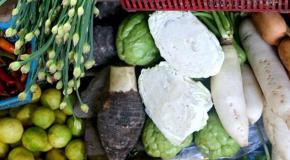Agriculture, Food and Beverages: Trade challenges and opportunities post pandemic
The global supply chains for food, agricultural products and technology experienced an unprecedented shock due to the pandemic. Despite the disruption trade in foodstuff remained remarkably resilient, highlighting the essential role of food supply in times of crisis. Nevertheless, global food systems are undergoing a structural transformation that is necessary, not only to feed the world’s growing population, but also to prevent damaging impacts of climate change and environmental degradation.
Related content

Creative Industries: Trade challenges and opportunities post pandemic
The pandemic has brought sections of the creative industry to a halt, but also accelerated structural changes within the industry, such as the transition towards digital platforms and a greater role for individual ‘content creators’.
The pandemic has impacted the creative industries asymmetrically. Segments dependent on live audiences and cross-border travel, such as performing arts, theatre and cinema, were hard hit by social distances measures, while digital creative industries boomed. Europe’s performing arts sector lost 90% of its revenue, while its music sector registered a 76% decline.3 The sector also suffered from low state welfare provisions, as most creative industry workers are self-employed or freelancers and therefore not always eligible for job protection policies put in place. In Europe 32% of cultural sector workers are self-employed and lack job protection, a total of 7.3m jobs in the sector at risk, representing 3.7% of total EU employment.4 The pandemic has also accelerated the digital transition of the sector, highlighting the centrality of digital technology for economic resilience. Quickened innovation in digitalisation and technology, as live performance shut down has given rise to streaming platform as well as unique digital creative assets built on the blockchain, like non-fungible tokens (NFTs). Growth has been notable in digital publishing, with the UK seeing a 37% increase in audio downloads, and a 24% increase in digital book downloads.5 The shift to online sales favored players that already had an established online presence, as well as those who swiftly adapted. This is seen to favor the advertising sector, which is forecasted to a strong recovery in 2021 in the UK, increasing to £29bn in 2022.6 This is largely attributed to the digital shift.
Annual revenue of global entertainment market (US$ bn)The digital transition shift has given birth to new producer tools, new distribution and dissemination platforms and the rise of the ‘creator economy’. These have profound implications for the sector’s growth, development and international trade. The music streaming and video on-demand revolution has established a new market and increased competitive tensions between players. On-demand video grew by 31% in 2020. There are now 1.1bn online video subscribers online, up 26% from 2019.7 The rise of the ’creator economy’, aided by the emergence of a growing range of tools allowing the production of high-quality content with minimal financial requirements, has also given birth to new forms of revenue in the creator space. One fifth of companies surveyed in a 2019 poll spend at least half their marketing budget on influencers.8, is a niche market that is growing rapidly. The rise of TikTok, for example, has generated US$20bn in sales from China in 2020 and forecasted global sales of US$40bn in 2021.9
Crucially, as a highly globalised, employment-intensive sector with a significant growth potential, creative industries are an important part of rapid and inclusive post-pandemic recovery. One study estimated that creative industries contributed 4.5% to US GDP – more than construction, transportation, mining or agriculture – and can significantly improve, not merely reflect, the health of the economy following a downturn.10 The creative sector offers economic diversification and can rapidly recover from a downturn, without being impacted by other slow growing sectors, or external volatility. As recognised by the UN, the creative economy has the potential to support developing and transition economies in diversifying production and exports and to deliver sustainable and inclusive development.11
1 UNCTAD, 2021: https://unctad.org/news/creative-economy-have-its-year-sun-2021#:~:text=UNCTAD%20has%20tracked%20trade%20 in,prospects%20look%20bleak%2C%E2%80%9D%20Ms. 2 UNESCO, 2018: https://en.unesco.org/creativity/sites/creativity/files/global_report_fact_sheet_en.pdf 3 The Guardian, 2020: https://www.theguardian.com/technology/2021/mar/12/non-fungible-tokens-revolutionising-art-world-theft 4 European Commission, 2020: https://ec.europa.eu/jrc/en/news/expert-investigating-pandemic-s-impact-europe-s-cultural-activities 5 Publishing in 2020 6 City AM, 2021: https://www.cityam.com/uk-advertising-sector-on-track-for-strongest-global-recovery/ 7 The Motion Picture Association, 2021: https://www.motionpictures.org/wp-content/uploads/2021/03/MPA-2020-THEME-Report.pdf 8 Wired, 2020: https://www.wired.com/story/influencer-economy-hurtles-first-recession/ 9 Bloomberg, 2021: https://www.bloomberg.com/news/articles/2021-06-10/tiktok-is-jacking-up-prices-as-it-builds-its-ad-business 10 Douglas Noonan: https://nasaa-arts.org/wp-content/uploads/2021/01/ArtsCultureContribEconRecovery-KeyFindings.pdf 11 UNCTAD, 2021: https://unctad.org/news/creative-economy-have-its-year-sun-2021

Financial and Professional Services: Trade challenges and opportunities pos...
Alongside professional services, it plays a pivotal role in the modern economy and international trade flows. The Covid-19 pandemic significantly disrupted the industry that was already being reshaped by the effects of the global financial crisis, sustainability drive and digital innovation. Digital transformation, changing customer preferences and regulatory pressures, are also challenging existing business models in financial and related professional services.
Despite entering the pandemic more resilient than it has been prior to the previous crisis, and stronger than expected performance in 2021, the global banking sector may register losses as a result of the pandemic over the next years. These will show in the form of credit losses, with defaults expected to soar as state support is withdrawn. One estimate forecast the industry’s loss in revenue at US$3.7trn over the next five years.1 Moreover, the uneven nature of the post-pandemic recovery will hit some regions and sectors harder than others. There is limited scope for wider margins in developed markets, with interest rates low and financial services utilisation high. In developed economies there is much greater space to reach new customers, despite the increase in credit risks.2 Digital technologies are restructuring the way financial services are provided, the competition dynamics and how the customers interact with the industry. The rise of financial technology (fintech), blockchain and artificial intelligence companies, are threatening traditional providers of financial services through increased competition. Challenger neobanks (digital-only providers) and telecom providers are gradually increasing their share in the market, both in terms of processes and services offered to customers. Traditional providers that struggle to shift activities to digital channels risk losing market share and the ability to reach new customers. In 2018 fintech companies already accounted for 38% of unsecured personal lending in the US, while they are “economically relevant” in SME financing in China, the US and the UK, according the Bank for International Settlements (BIS).3
Fintech boom: Number of UK Fintech companies (rebased at year 2000), 2000-2020Digital currencies have increasingly become the focus in central banks around the world amid growing government, business and consumer interest. A Central Bank Digital Currency (CBDC) would allow central banks to issue electronic money available to all households and businesses, allowing them to make payments in CBDC. A report from the Bank for International Settlements highlighted that 28% of 50 central banks surveyed were looking into CBDC interoperability.4 Of the major world economies, China is thought to be the most advanced CBDC testing, with the e-CNY digital yuan expected to launch in 2022.5 CBDCs could bring wider access, stronger governance and privacy standards to digital payments systems, currently dominated by cryptocurrencies such as Bitcoin.
Going digital: Willingness of central Banks to adopt range of approaches to interoperabilty of Central Bank Digital Currency (CBDCs) (%), 2021There is also growing consensus that financial services actors need to upgrade their agenda towards climate finance, as net zero cannot be achieved without the funding needed to mitigate the physical risks of the impact of climate change. Global climate financing was estimated to have reached up to US$620 in 2019, the bulk of which through debt issuance. Financing a transition to a climate-resilient economy will require much greater investment than is currently being committed, and failure to provide it will result in even more investment for climate adaptation and mitigation in the longer term. Estimates suggest that US$100-150trn will be needed to reach the 1.5-degree target by 2050.6
Climate finance growth: Total global climate finance flows (US$bn), 2012-2019The growing prominence of institutional and private investment in climate financing has prompted regulatory efforts to drive climate related activities. Regulation is responding to market developments with new tools, such as green bonds, and shaping the disclosure requirements through the launch of the Taskforce on Climate-related Financial Disclosures. However, more needs to be done to incentivise climate financing and the financial services industry has a vital role in facilitating the tools and mechanisms that will help address climate change.
1 McKinsey. ‘Interim Results 2021’. 2021. https://www.mckinsey.com/industries/financial-services/our-insights/global-banking-annual-review 2 The Economist Intelligence Unit (EIU).’Financial Services Global Outlook. 2021 3 Frost, J. ‘The economic forces driving fintech adoption across countries’. Bank for International settlements. https://www.bis.org/publ/work838.pdf, p.2 4 Auer, R et al. ‘CBDCs beyond borders: results from a survey of central banks’. Bank for International Settlements. 2021.https://www.bis.org/publ/bppdf/bispap116.htm 5 Lim, M. ‘What lies ahead for CBDCs, Bitcoin and other digital currencies?’. Fintech News. 2021.https://www.fintechnews.org/what-lies-ahead-for-cbdcs-bitcoin-and-other-digital-currencies/ 6 GFMA. ‘GFMA and BCG Report on Climate Finance Markets and the Real Economy‘. Global Financial Markets Association. 2020.https://www.gfma.org/policies-resources/gfma-and-bcg-report-on-climate-finance-markets-and-the-real-economy/

The Global Investment Landscape: Trade challenges and opportunities post pa...
Whilst the immediate effects have been severe, the pandemic has further accelerated trends that are reshaping the global investment landscape, such as the push for digital, sustainable and resilient solutions in a world that has turned more fragmented. Estimates suggest that in 2020 global trade in goods fell by 8%, while foreign direct investment (FDI) flows fell by a record 35% to US£1trn, the lowest figure since 2005.1 2 The retraction in global cross-border investments was more severe in developed economies, where FDI inflows and outflows fell by almost 60%. On the other hand, developing economies saw FDI inflows and outflows fall by only 10% largely due to resilient flows in Asia, particularly in China and India.3
During the pandemic the internationalisation of major multinational enterprises (MNEs) stagnated, although the degree of this effect varied considerably across industries. The value of announced greenfield investment fell by 33% to a record low of US$564bn, cross border M&A investment fell by 6% to US$475bn while project finance deals registered a 42% decline to US$367bn in 2020.4 The UNCTAD forecasts suggest global FDI flows have recover some ground in 2021 and return to pre-pandemic levels (2019) in 2022. Developed economies are expected to drive the growth in FDI, particularly in M&A activity and public investment support. These measures will have a positive effect on infrastructure, green, and digital economy sectors.5
Over the past two decades, the increasing investment in services, enlarged pool of cross border investors and the focus on emerging technologies have shaped the global investment landscape. The gradual servicification of manufacturing and the rapid rise of global digital technology companies have driven an upwards trajectory for investment in services. Services accounted for 60% of announced greenfield projects and 71% of announced cross border M&A deals in 2020.6 The sources of the investment flows are also becoming more diversified, with the emerging markets accounting for almost one fifth of global M&A deals by value and almost half the total value of global greenfield and international project investment in 2020.7 State-owned investors (SOIs), including largely emerging-market-located sovereign wealth funds (SWFs) have also become prevalent in the investment landscape with a growing appetite for alternative asset classes and active investment strategies.
Changing guards: Top host economies by FDI inflows (2019-20)As the global economy recovers from the pandemic, major forces ranging from emerging technologies, investment policy sustainability and geopolitics will reshape the pattern of the global investment landscape. FDI regulations and policies, already gaining traction prior to the pandemic, have been deployed by national governments to address supply chain vulnerabilities and the risk of predatory takeovers of strategic sectors. The number of investment policy measures adopted in 2020 rose by 40% compared to 2019, with the ratio of restrictive policy measures to liberalisation measures increasing by 41%.8
GVCs will also adopt new modes of business operation to enhance resilience, flexibility and uncertainty of considering the current global business environment. This could involve elements of reshoring or regionalisation for businesses, while governments are expected to gear up efforts to increase sustainability of business operations through integration of environmental, social and governance standards into regulatory frameworks for foreign investments and capital markets. Geopolitics and the changing geography of global demand will impact the international investment as developing countries continue to deepen their participation in global investment flows and tension remains high in the rivalry between the US-China.9
Policies matter: Number of investment policy measures adopted globally between 2008-20201 “World trade primed for strong but uneven recovery after COVID-19 pandemic shock”; World Trade Organisation, press release (March 2021) 2 “World Investment Report 2021: Investing in Sustainable Recovery”; UNCTAD (June 2021). 3 Ibid. 4 Ibid. 5 Ibid. 6 “World Investment Report 2020: International Production Beyond the Pandemic”; UNCTAD (June 2020). 7 “World Investment Report 2021: Investing in Sustainable Recovery”; UNCTAD (June 2021) 8 Ibid. 9 “Globalization in transition: The future of trade and value chains”; McKinsey Global Institute (2019)
Food 4.0: Technology in Agriculture and Food
Related content

Accelerating urban intelligence: People, business and the cities of tomorro...
About the research
Accelerating urban intelligence: People, business and the cities of tomorrow is an Economist Intelligence Unit report, sponsored by Nutanix. It explores expectations of citizens and businesses for smart-city development in some of the world’s major urban centres. The analysis is based on two parallel surveys conducted in 19 cities: one of 6,746 residents and another of 969 business executives. The cities included are Amsterdam, Copenhagen, Dubai, Frankfurt, Hong Kong, Johannesburg, London, Los Angeles, Mumbai, New York, Paris, Riyadh, San Francisco, São Paulo, Singapore, Stockholm, Sydney, Tokyo and Zurich.
Respondents to the citizen survey were evenly balanced by age (roughly one-third in each of the 18-38, 39-54 and 55 years and older age groups) and gender. A majority (56%) had household incomes above the median level in their city, with 44% below it. Respondents to the business survey were mainly senior executives (65% at C-suite or director level) working in a range of different functions. They work in large, midsize and small firms in over a dozen industries. See the report appendix for full survey results and demographics.
Additional insights were obtained from indepth interviews with city officials, smart-city experts at NGOs and other institutions, and business executives. We would like to thank the following individuals for their time and insights.
Pascual Berrone, academic co-director, Cities in Motion, and professor, strategic management, IESE Business School (Barcelona) Lawrence Boya, director, Smart City Programme, city of Johannesburg Amanda Daflos, chief innovation officer, city of Los Angeles Linda Gerull, chief information officer, city of San Francisco Praveen Pardeshi, municipal commissioner, Brihanmumbai Municipal Corporation (Mumbai) • Brian Roberts, policy analyst, city of San Francisco Sameer Sharma, global general manager, Internet of Things (IoT), Intel • Marius Sylvestersen, programme director, Copenhagen Solutions Lab Tan Kok Yam, deputy secretary of the Smart Nation and Digital Government, Prime Minister’s Office, SingaporeThe report was written by Denis McCauley and edited by Michael Gold.

Talent for innovation
Talent for innovation: Getting noticed in a global market incorporates case studies of the 34 companies selected as Technology Pioneers in biotechnology/health, energy/environmental technology, and information technology.
Leonardo Da Vinci unquestionably had it in the 15th century; so did Thomas Edison in the 19th century. But today, "talent for innovation" means something rather different. Innovation is no longer the work of one individual toiling in a workshop. In today's globalised, interconnected world, innovation is the work of teams, often based in particular innovation hotspots, and often collaborating with partners, suppliers and customers both nearby and in other countries.
Innovation has become a global activity as it has become easier for ideas and talented people to move from one country to another. This has both quickened the pace of technological development and presented many new opportunities, as creative individuals have become increasingly prized and there has been greater recognition of new sources of talent, beyond the traditional innovation hotspots of the developed world.
The result is a global exchange of ideas, and a global market for innovation talent. Along with growth in international trade and foreign direct investment, the mobility of talent is one of the hallmarks of modern globalisation. Talented innovators are regarded by companies, universities and governments as a vital resource, as precious as oil or water. They are sought after for the simple reason that innovation in products and services is generally agreed to be a large component, if not the largest component, in driving economic growth. It should be noted that "innovation" in this context does not simply mean the development of new, cutting-edge technologies by researchers.
It also includes the creative ways in which other people then refine, repackage and combine those technologies and bring them to market. Indeed, in his recent book, "The Venturesome Economy", Amar Bhidé, professor of business at Columbia University, argues that such "orchestration" of innovation can actually be more important in driving economic activity than pure research. "In a world where breakthrough ideas easily cross national borders, the origin of ideas is inconsequential," he writes. Ideas cross borders not just in the form of research papers, e-mails and web pages, but also inside the heads of talented people. This movement of talent is not simply driven by financial incentives. Individuals may also be motivated by a desire for greater academic freedom, better access to research facilities and funding, or the opportunity to work with key researchers in a particular field.
Countries that can attract talented individuals can benefit from more rapid economic growth, closer collaboration with the countries where those individuals originated, and the likelihood that immigrant entrepreneurs will set up new companies and create jobs. Mobility of talent helps to link companies to sources of foreign innovation and research expertise, to the benefit of both. Workers who emigrate to another country may bring valuable knowledge of their home markets with them, which can subsequently help companies in the destination country to enter those markets more easily. Analysis of scientific journals suggests that international co-authorship is increasing, and there is some evidence thatcollaborative work has a greater impact than work carried out in one country. Skilled individuals also act as repositories of knowledge, training the next generation and passing on their accumulated wisdom.
But the picture is complicated by a number of concerns. In developed countries which have historically depended to a large extent on foreign talent (such as the United States), there is anxiety that it is becoming increasingly difficult to attract talent as new opportunities arise elsewhere. Compared with the situation a decade ago, Indian software engineers, for example, may be more inclined to set up a company in India, rather than moving to America to work for a software company there. In developed countries that have not historically relied on foreign talent (such as Germany), meanwhile, the ageing of the population as the birth rate falls and life expectancy increases means there is a need to widen the supply of talent, as skilled workers leave the workforce and young people show less interest than they used to in technical subjects. And in developing countries, where there is a huge supply of new talent (hundreds of thousands of engineers graduate from Indian and Chinese universities every year), the worry is that these graduates have a broad technical grounding but may lack the specialised skills demanded by particular industries.
Other shifts are also under way. The increasing sophistication of emerging economies (notably India and China) is overturning the old model of "create in the West, customise for the East". Indian and Chinese companies are now globally competitive in many industries. And although the mobility of talent is increasing, workers who move to another country are less likely to stay for the long-term, and are more likely to return to their country of origin. The number of Chinese students studying abroad increased from 125,000 in 2002 to 134,000 in 2006, for example, but the proportion who stayed in the country where they studied after graduating fell from 85% to 69% over the same period, according to figures from the OECD (see page 10).
What is clear is that the emergence of a global market for talent means gifted innovators are more likely to be able to succeed, and new and unexpected opportunities are being exploited, as this year's Technology Pioneers demonstrate. They highlight three important aspects of the global market for talent: the benefits of mobility, the significant role of diasporas, and the importance of network effects in catalysing innovation.
Brain drain, or gain?
Perhaps the most familiar aspect of the debate about flows of talent is the widely expressed concern about the "brain drain" from countries that supply talented workers. If a country educates workers at the taxpayers' expense, does it not have a claim on their talent? There are also worries that the loss of skilled workers can hamper institutional development and drive up the cost of technical services. But such concerns must be weighed against the benefits of greater mobility.
There are not always opportunities for skilled individuals in their country of birth. The prospect of emigration can encourage the development of skills by individuals who may not in fact decide to emigrate. Workers who emigrate may send remittances back to their families at home, which can be a significant source of income and can help to alleviate poverty. And skilled workers may return to their home countries after a period working abroad, further stimulating knowledge transfer and improving the prospects for domestic growth, since they will maintain contacts with researchers overseas. As a result, argues a recent report from the OECD, it makes more sense to talk of a complex process of "brain circulation" rather than a one-way "brain drain". The movement of talent is not simply a zero-sum gain in which sending countries lose, and receiving countries benefit. Greater availability and mobility of talent opens up new possibilities and can benefit everyone.
Consider, for example, BioMedica Diagnostics of Windsor, Nova Scotia. The company makes medical diagnostic systems, some of them battery-operated, that can be used to provide health care in remote regions to people who would otherwise lack access to it. It was founded by Abdullah Kirumira, a Ugandan biochemist who moved to Canada in 1990 and became a professor at Acadia University. There he developed a rapid test for HIV in conjunction with one of his students, Hermes Chan (a native of Hong Kong who had moved to Canada to study). According to the United States Centers for Disease Control, around one-third of people tested for HIV do not return to get the result when it takes days or weeks to determine. Dr Kirumira and Dr Chan developed a new test that provides the result in three minutes, so that a diagnosis can be made on the spot. Dr Kirumira is a prolific inventor who went on to found several companies, and has been described as "the pioneer of Nova Scotia's biotechnology sector".
Today BioMedica makes a range of diagnostic products that are portable, affordable and robust, making them ideally suited for use in developing countries. They allow people to be rapidly screened for a range of conditions, including HIV, hepatitis, malaria, rubella, typhoid and cholera. The firm's customers include the World Health Organisation. Providing such tests to patients in the developing world is a personal mission of Dr Kirumira's, but it also makes sound business sense: the market for invitro diagnostics in the developing world is growing by over 25% a year, the company notes, compared with growth of only 5% a year in developed nations.
Moving to Canada gave Dr Kirumira research opportunities and access to venture funding that were not available in Uganda. His innovations now provide an affordable way for hospitals in his native continent of Africa to perform vital tests. A similar example is provided by mPedigree, a start-up that has developed a mobile-phone-based system that allows people to verify the authenticity of medicines. Counterfeit drugs are widespread in the developing world: they are estimated to account for 10-25% of all drugs sold, and over 80% in some countries. The World Health Organisation estimates that a fake vaccine for meningitis, distributed in Niger in 1995, killed over 2,500 people. mPedigree was established by Bright Simons, a Ghanaian social entrepreneur, in conjunction with Ashifi Gogo, a fellow Ghanaian. The two were more than just acquaintances having met at Secondary School. There are many high-tech authentication systems available in the developed world for drug packaging, involving radio-frequency identification (RFID) chips, DNA tags, and so forth.
The mPedigree system developed my Mr Gogo, an engineering student, is much cheaper and simpler and only requires the use of a mobile phone — an item that is now spreading more quickly in Africa than in any other region of the world. Once the drugs have been purchased, a panel on the label is scratched off to reveal a special code. The patient then sends this code, by text message, to a particular number. The code is looked up in a database and a message is sent back specifying whether the drugs are genuine. The system is free to use because the drug companies cover the cost of the text messages. It was launched in Ghana in 2007, and mPedigree's founders hope to extend it to all 48 sub-Saharan African countries within a decade, and to other parts of in the developing world.
The effort is being supported by Ghana's Food and Drug Board, and by local telecoms operators and drug manufacturers. Mr Gogo has now been admitted into a special progamme at Dartmouth College in the United States that develops entrepreneurial skills, in addition to technical skills, in engineers. Like Dr Kirumira, he is benefiting from opportunities that did not exist in his home country, and his country is benefiting too. This case of mPedigree shows that it is wrong to assume that the movement of talent is one-way (from poor to rich countries) and permanent. As it has become easier to travel and communications technology has improved, skilled workers have become more likely to spend brief spells in other countries that provide opportunities, rather than emigrating permanently.
And many entrepreneurs and innovators shuttle between two or more places — between Tel Aviv and Silicon Valley, for example, or Silicon Valley and Hsinchu in Taiwan — in a pattern of "circular" migration, in which it is no longer meaningful to distinguish between "sending" and "receiving" countries.
The benefits of a diaspora
Migration (whether temporary, permanent or circular) to a foreign country can be facilitated by the existence of a diaspora, since it can be easier to adjust to a new culture when you are surrounded by compatriots who have already done so. Some observers worry that diasporas make migration too easy, in the sense that they may encourage a larger number of talented individuals to leave their home country than would otherwise be the case, to the detriment of that country.
But as with the broader debate about migration, this turns out to be only part of the story. Diasporas can have a powerful positive effect in promoting innovation and benefiting the home country. Large American technology firms, for example, have set up research centres in India in part because they have been impressed by the calibre of the migrant Indian engineers they have employed in America. Diasporas also provide a channel for knowledge and skills to pass back to the home country.
James Nakagawa, a Canadian of Japanese origin and the founder of Mobile Healthcare, is a case in point. A third-generation immigrant, he grew up in Canada but decided in 1994 to move to Japan, where he worked for a number of technology firms and set up his own financial-services consultancy. In 2000 he had the idea that led him to found Mobile Healthcare, when a friend was diagnosed with diabetes and lamented that he found it difficult to determine which foods to eat, and which to avoid.
The rapid spread of advanced mobile phones in Japan, a world leader in mobile telecoms, prompted Mr Nakagawa to devise Lifewatcher, Mobile Healthcare's main product. It is a "disease selfmanagement system" used in conjunction with a doctor, based around a secure online database that can be accessed via a mobile phone. Patients record what medicines they are taking and what food they are eating, taking a picture of each meal. A database of common foodstuffs, including menu items from restaurants and fast-food chains, helps users work out what they can safely eat. Patients can also call up their medical records to follow the progress of key health indicators, such as blood sugar, blood pressure, cholesterol levels and calorie intake.
All of this information can also be accessed online by the patient's doctor or nutritionist. The system allows people with diabetes or obesity (both of which are rapidly becoming more prevalent in Japan and elsewhere) to take an active role in managing their conditions. Mr Nakagawa did three months of research in the United States and Canada while developing Lifewatcher, which was created with support from Apple (which helped with hardware and software), the Japanese Red Cross and Japan's Ministry of Health and Welfare (which provided full access to its nutritional database).
Japanese patients who are enrolled in the system have 70% of the cost covered by their health insurance. Mr Nakagawa is now working to introduce Lifewatcher in the United States and Canada, where obesity and diabetes are also becoming more widespread — along advanced mobile phones of the kind once only found in Japan. Mr Nakagawa's ability to move freely between Japanese and North American cultures, combining the telecoms expertise of the former with the entrepreneurial approach of the latter, has resulted in a system that can benefit both.
The story of Calvin Chin, the Chinese-American founder of Qifang, is similar. Mr Chin was born and educated in America, and worked in the financial services and technology industries for several years before moving to China. Expatriate Chinese who return to the country, enticed by opportunities in its fast-growing economy, are known as "returning turtles". Qifang is a "peer to peer" (P2P) lending site that enables students to borrow money to finance their education from other users of the site. P2P lending has been pioneered in other countries by sites such as Zopa and Prosper in other countries.
Such sites require would-be borrowers to provide a range of personal details about themselves to reassure lenders, and perform credit checks on them. Borrowers pay above-market rates, which is what attracts lenders. Qifang adds several twists to this formula. It is concentrating solely on student loans, which means that regulators are more likely to look favourably on the company's unusual business model. It allows payments to be made directly to educational institutions, to make sure the money goes to the right place. Qifang also requires borrowers to give their parents' names when taking out a loan, which increases the social pressure on them not to default, since that would cause the family to lose face.
Mr Chin has thus tuned an existing business model to take account of the cultural and regulatory environment in China, where P2P lending could be particularly attractive, given the relatively undeveloped state of China's financial-services market. In a sense, Qifang is just an updated, online version of the community group-lending schemes that are commonly used to finance education in China. The company's motto is that "everyone should be able to get an education, no matter their financial means".
Just as Mr Chin is trying to use knowledge acquired in the developed world to help people in his mother country of China, Sachin Duggal hopes his company, Nivio, will do something similar for people in India. Mr Duggal was born in Britain and is of Indian extraction. He worked in financial services, including a stint as a technologist at Deutsche Bank, before setting up Nivio, which essentially provides a PC desktop, personalised with a user's software and documents, that can be accessed from any web browser.
This approach makes it possible to centralise the management of PCs in a large company, and is already popular in the business world. But Mr Duggal hopes that it will also make computing more accessible to people who find the prospect of owning and managing their own PCs (and dealing with spam and viruses) too daunting, or simply cannot afford a PC at all. Nivio's software was developed in India, where Mr Duggal teamed up with Iqbal Gandham, the founder of Net4India, one of India's first internet service providers. Mr Duggal believes that the "virtual webtop" model could have great potential in extending access to computers to rural parts of India, and thus spreading the opportunities associated with the country's high-tech boom. A survey of the bosses of Indian software firms clearly shows how diasporas can promote innovation.
It found that those bosses who had lived abroad and returned to India made far more use of diaspora links upon their return than entrepreneurs who had never lived abroad, which gave them access to capital and skills in other countries. Diasporas can, in other words, help to ensure that "brain drain" does indeed turn into "brain gain", provided the government of the country in question puts appropriate policies in place to facilitate the movement of people, technology and capital.
Making the connection
Multinational companies can also play an important role in providing new opportunities for talented individuals, and facilitating the transfer of skills. In recent years many technology companies have set up large operations in India, for example, in order to benefit from the availability of talented engineers and the services provided by local companies. Is this simply exploitation of low-paid workers by Western companies?
The example of JiGrahak Mobility Solutions, a start-up based in Bangalore, illustrates why it is not. The company was founded by Sourabh Jain, an engineering graduate from the Delhi Institute of Technology. After completing his studies he went to work for the Indian research arm of Lucent Technologies, an American telecoms-equipment firm. This gave him a solid grounding in mobile-phone technology, which subsequently enabled him to set up JiGrahak, a company that provides a mobile-commerce service called Ngpay.
In India, where many people first experience the internet on a mobile phone, rather than a PC, and where mobile phones are far more widespread than PCs, there is much potential for phone-based shopping and payment services. Ngpay lets users buy tickets, pay bills and transfer money using their handsets. Such is its popularity that with months of its launch in 2008, Ngpay accounted for 4% of ticket sales at Fame, an Indian cinema chain.
The role of large companies in nurturing talented individuals, who then leave to set up their own companies, is widely understood in Silicon Valley. Start-ups are often founded by alumni from Sun, HP, Oracle and other big names. Rather than worrying that they could be raising their own future competitors, large companies understand that the resulting dynamic, innovative environment benefits everyone, as large firms spawn, compete with and acquire smaller ones.
As large firms establish outposts in developing countries, such catalysis of innovation is becoming more widespread. Companies with large numbers of employees and former employees spread around the world can function rather like a corporate diaspora, in short, providing another form of network along which skills and technology can diffuse. The network that has had the greatest impact on spreading ideas, promoting innovation and allowing potential partners to find out about each other's research is, of course, the internet. As access to the internet becomes more widespread, it can allow developing countries to link up more closely with developed countries, as the rise of India's software industry illustrates. But it can also promote links between developing countries.
The Cows to Kilowatts Partnership, based in Nigeria, provides an unusual example. It was founded by Joseph Adelagan, a Nigerian engineer, who was concerned about the impact on local rivers of effluent from the Bodija Market abattoir in Ibadan. As well as the polluting the water supply of several nearby villages, the effluent carried animal diseases that could be passed to humans. Dr Adelagan proposed setting up an effluent-treatment plant.
He discovered, however, that although treating the effluent would reduce water pollution, the process would produce carbon-dioxide and methane emissions that contribute to climate change. So he began to look for ways to capture these gases and make use of them. Researching the subject online, he found that a research institution in Thailand, the Centre for Waste Utilisation and Management at King Mongkut University of Technology Thonburi, had developed anaerobic reactors that could transform agro-industrial waste into biogas. He made contact with the Thai researchers, and together they developed a version of the technology
suitable for use in Nigeria that turns the abattoir waste into clean household cooking gas and organic fertiliser, thus reducing the need for expensive chemical fertiliser. The same approach could be applied across Africa, Dr Adelagan believes. The Cows to Kilowatts project illustrates the global nature of modern innovation, facilitated by the free movement of both ideas and people. Thanks to the internet, people in one part of the world can easily make contact with people trying to solve similar problems elsewhere.
Lessons learned
What policies should governments adopt in order to develop and attract innovation talent, encourage its movement and benefit from its circulation? At the most basic level, investment in education is vital. Perhaps surprisingly, however, Amar Bhidé of Columbia University suggests that promoting innovation does not mean pushing as many students as possible into technical subjects.
Although researchers and technologists provide the raw material for innovation, he points out, a crucial role in orchestrating innovation is also played by entrepreneurs who may not have a technical background. So it is important to promote a mixture of skills. A strong education system also has the potential to attract skilled foreign students, academics and researchers, and gives foreign companies an incentive to establish nearby research and development operations.
Many countries already offer research grants, scholarships and tax benefits to attract talented immigrants. In many cases immigration procedures are "fast tracked" for individuals working in science and technology. But there is still scope to remove barriers to the mobility of talent. Mobility of skilled workers increasingly involves short stays, rather than permanent moves, but this is not yet widely reflected in immigration policy. Removing barriers to short-term stays can increase "brain circulation" and promote diaspora links.
Another problem for many skilled workers is that their qualifications are not always recognised in other countries. Greater harmonisation of standards for qualifications is one way to tackle this problem; some countries also have formal systems to evaluate foreign qualifications and determine their local equivalents. Countries must also provide an open and flexible business environment to ensure that promising innovations can be brought to market. If market access or financial backing are not available, after all, today's global-trotting innovators increasingly have the option of going elsewhere.
The most important point is that the global competition for talent is not a zero-sum game in which some countries win, and others lose. As the Technology Pioneers described here demonstrate, the nature of innovation, and the global movement of talent and ideas, is far more complicated that the simplistic notion of a "talent war" between developed and developing nations would suggest. Innovation is a global activity, and granting the greatest possible freedom to innovators can help to ensure that the ideas they generate will benefit the greatest possible number of people.

Integrated Transformation: How rising customer expectations are turning com...
Modern customers have it good. Spoilt for choice and convenience, today’s empowered consumers have come to expect more from the businesses they interact with. This doesn’t just apply to their wanting a quality product at a fair price, but also tailored goods, swift and effective customer service across different channels, and a connected experience across their online shopping and in-store experience, with easy access to information they need when they want it.
Meeting these expectations is a significant challenge for organisations. For many, it requires restructuring long-standing operating models, re-engineering business processes and adopting a fundamental shift in mindset to put customer experience at the heart of business decision- making. Download our report to learn more.
Agriculture | How will covid-19 reshape key Australian industries?
Figure 1: Global trade in agricultural products during the Global Financial Crisis
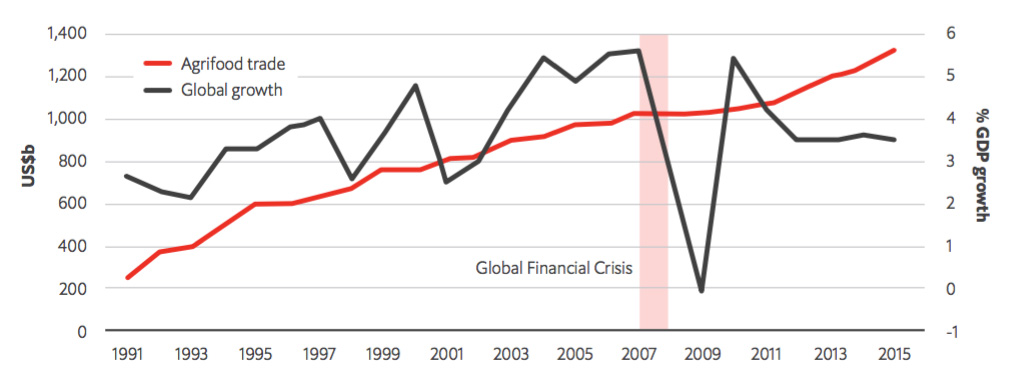
17413
Related content
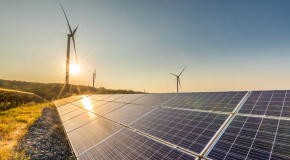
Financing sustainability: Asia Pacific embraces the ESG challenge
Financing sustainability: Asia Pacific embraces the ESG challenge is an Economist Intelligence Unit report, sponsored by Westpac. It explores the drivers of sustainable finance growth in Asia Pacific as well as the factors constraining it. The analysis is based on two parallel surveys—one of investors and one of issuers—conducted in September and October 2019.
If the countries of Asia Pacific are to limit the negative environmental effects of continued economic growth, and companies in the region are to mitigate their potential climate risks and make a positive business contribution through improving the environment and meeting the UN's Sustainable Development Goals (SDGs), large volumes of investment in sustainable projects and businesses need to be mobilised. A viable sustainable finance market is taking shape in the region to channel commercial investor funds, and both investors and issuers say they are achieving a financial benefit from their investment and financing activities. The market is still in the early stages of development, however, and must expand and mature to meet investor needs.
The chief constraint on sustainable finance growth in the region has been the limited supply of bankable sustainable projects. Our research suggests supply is increasing, but with investor demand continuing to grow apace, the gap will remain an obstacle in the short- to medium-term. Among the organisations in our issuer survey, only 7% have used sustainable finance instruments to fund projects. However, nearly nine in ten (87%) said they intend to do so in the next year, which should begin to bridge the gap between supply and demand.
Based on issuers’ stated intentions, investors will have a range of instruments to choose from, including green loans and bonds and sustainability loans and bonds. Large numbers of investors indicate that they intend to deploy a greater proportion of capital to these over the next three years.

Financing sustainability | Insights video
What is driving the strong demand for financing sustainability in Asia Pacific? How can companies increase supply and start to see the benefits of sustainable finance in the next three years? We interviewed Richard Brandweiner, CEO of Pendal Australia, and Sophia Cheng, CIO of Cathay Financial Holdings and chair of Asia Investor Group on Climate Change, to find out.
To learn more: Download report | View infographic
Financing sustainability | Infographic
Financing sustainability: How do investors and issuers in APAC's sustainable finance market view the present market opportunities and constraints?
To learn more:
Download report | Watch videoCities 80m people will call home: Is Africa’s urbanisation sustainable?
Is this a problem? From London and Tokyo to New York and Shanghai, large cities historically drove the world’s largest economies. Evidence still shows that urban population increases can be sustained when economic growth reinforces such population increases.
17115
Related content

Safe Cities Index 2019
Cities across the globe are growing in size and in terms of how connected they are. Which cities are best at keeping their citizens safe and how do they do it? An updated version of the Safe Cities Index 2017, the 2019 index covers 60 cities across the globe and defines how to measure security in a rapidly urbanising world.
Visit the Safe Cities hub for more interactive content >>

Five-star cities: Asia’s best cities for work and recreation
The 2019 bleisure barometer: Asia’s best cities for work and recreation evaluates the bleisure potential of various cities in Asia-Pacific, based on a survey of global business travellers. It reveals that while Asia’s top bleisure destinations provide the right balance of business activity, high-quality infrastructure and top-flight leisure experiences, many less obvious choices stand out for different reasons, often involving opportunities for cultural exchange.
The key findings are:
Tokyo is Asia’s best bleisure destination, ranking first out of 26 cities in the region. The Japanese capital is joined by Singapore, Sydney, Hong Kong and Melbourne as a “five-star” bleisure city, as determined by a quantitative barometer constructed for this programme, based on survey responses. Raw scores and number of stars may not correlate perfectly, as the former is an absolute measure and the latter a relative one (see appendix I for the full methodology of barometer and star scoring). Less-affluent cities comprise most of the one-star destinations, with notable exceptions. Business travel may prove arduous in the emerging metropolises of South and South-east Asia, but greater GDP is hardly the only predictor of a high bleisure score. New Delhi and Hanoi tie for second (alongside Beijing and Hong Kong) in the category measuring opportunities for cultural experiences, providing them a leg up over cities with stronger infrastructure and a bigger international business scene. Shanghai and Beijing, often criticised for their poor urban environments, rank highly on business aspects such as quality of international links and level of digital connectivity, helping them best more ostensibly liveable cities, including Auckland, Brisbane, Seoul, Taipei and Wellington, in the overall ranking. Wealthy Adelaide falls in the one-star category, dragged down by low scores for quality of food and beverage and opportunity for cultural experiences. Ease of transportation is the top urban factor in a successful business trip. Other key aspects include street safety and quality of business venues, according to our survey. Regional differences emerge in these findings, with Asian executives prioritising transportation, while Europeans are less concerned about safety than those hailing from elsewhere. Dining out and enjoying local heritage are the chief ways busy business travellers unwind. These two factors rank well ahead of the third-place finisher, visiting an art museum or gallery. Regional nuances crop up here too: Asian executives are less likely to frequent the local drinking scene and more inclined to visit an amusement park.The report, including full scoring and star bracket methodology, as well as an infographic and video, can be found at: https://fivestarcities.economist.com/
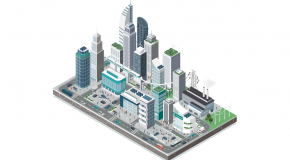
Flexible cities: The future of Australian infrastructure
As this report finds, cities need smarter and more flexible infrastructure to address these challenges— infrastructure that can make better use of existing space and resources, and that can adapt in accordance with uncertain, fast-moving future realities.
The idea of ‘flexible’ or future-proof cities is becoming more important. Imagine a roadway that works for today’s vehicles as well as tomorrow’s autonomous cars, an energy system that can provide reliable power despite spikes in usage (such as those that may come from greater adoption of electric cars), pylons that are mindful of overhead drones, a building that transforms depending on needs of its inhabitants, or an autonomous rail system that can double its capacity simply through changes to its operating algorithms.
Delivering infrastructure that is more responsive and flexible to future needs requires technological innovation as much as it does new approaches to planning, financing and procurement.
In this report, The EIU investigates the challenges facing cities and urban infrastructure in the near future, and the global trends and innovations in infrastructure that will be crucial in response. With an eye to international best practice, it focuses on the challenges and opportunities pertinent to Australia. Here, major cities are facing significant population growth forecasts that call into question their ability to continuously provide a high quality of life for their citizens. Challenges pertain to both meeting infrastructure need, and in delivering solutions, through effective planning, financing and collaboration, in time and on budget.
The key findings of the research include:
Australia is experiencing a number of growing pains. Population growth in cities is a universal trend—urban population is expected to rise by two-thirds by 2050 globally—but it is particularly acute in Australia, where cities must meet double or greater user demand without conflicting with the global targets set by the Paris Agreement and Agenda 2030. Such growth challenges the capacity and sustainability of cities’ infrastructure and the networks that connect them. Planners must also reckon with an ageing population, deteriorating infrastructure, adverse environmental change and evolving working patterns, altering the dynamics of how people operate in and navigate cities. A failure to respond to these challenges could result in declining economic productivity and threats to the quality of life for which Australian cities are renowned. To meet future demands, infrastructure builders across the globe are considering how they can expand the capacity of existing infrastructure and bolster the flexibility of new works. Updated networks like roads, railways and pipelines often need to accommodate twice their original usage demand without changing their physical footprint. The effective adoption of digital technology will be key to this transformation, such as updating metro systems with driverless trains and automatic controls, informed by large amounts of real-time data, to allow a more efficient use of capacity. Water and energy supply systems must also prove reliable in the face of natural disasters, shifts in market prices (such as oil or gas price shocks) or changes to supply sources (backups for solar generation, for example). New technological techniques and applications can help builders work more quickly, safely and cost-effectively. The design, construction and maintenance of infrastructure projects are increasingly driven by digital technologies, unlocking cost and time savings in building roads, railways and entire city centres. The cost and energy required to build with the highest safety margins could be reduced by remote monitoring through embedded sensors. Efficient, low-impact construction techniques will be important to reduce the disruption that construction and repairs have on metropolitan areas, too. Stakeholders are increasingly reliant on data to plan, build and optimise projects. Data generated by citizens and connected infrastructure are increasingly critical in delivering and operating smarter cities. Governments and infrastructure providers increasingly benefit from adding this data to their modelling and scenario planning. Open data can also allow citizens and third parties to solve problems or invent new applications that benefit all, from crowdsourcing potholes or reporting crime, to building new navigation apps. Australia’s state and federal governments, citizens, and commercial partners are still grappling with data ownership issues, but all are working to address the challenges. Mature financing and procurement practices help Australia attract international investment. Attractive markets encourage international competition for infrastructure procurement. Indeed, many of today’s projects are contracted to international players who bring advanced, ambitious proposals to government. And as demand for more advanced, flexible projects rises, players are increasingly presenting envelope-pushing approaches to win bids. Collaboration between governments, universities and commercial players is increasing, sparking innovation. Universities are playing a larger role in the advancement and application of infrastructure technology by partnering with private companies and government. New forms of collaboration are also more apparent among federal, state and local governments, and between governments and the private sector, potentially easing the problems posed by the historically disjointed nature of decision-making and long-term planning on major infrastructure. Australia has a strong record of robust infrastructure investment. Its leaders, institutions and businesses have identified the urgency and importance of responsible and smart infrastructure initiatives. As a result, Australia is well placed to wrestle with the challenges it faces, and, as it navigates infrastructure challenges earlier and with greater urgency than some other countries, could be a model for how other countries—in the OECD and in Asia-Pacific—can build smarter, more flexible, next-generation infrastructure in their cities.
Related content

Resetting the agenda: How ESG is shaping our future
The Covid-19 pandemic has exposed a wealth of interconnections – between ecological and human wellbeing, between economic and environmental fragility, between social inequality and health outcomes, and more. The consequences of these connections are now filtering through, reshaping our society and economy.
In this setting, the need to integrate environmental, social and governance (ESG) factors when investing has become even more critical. Institutional investors must employ ESG not just to mitigate risks and identify opportunities, but to engage with companies to bring about the positive change needed to drive a sustainable economic recovery in the post-Covid world.
In order to understand how ESG could be both a new performance marker and a growth driver in this environment, as well as how institutional investors are using ESG to make investment decisions and to assess their own performance, The Economist Intelligence Unit (EIU), sponsored by UBS, surveyed 450 institutional investors working in asset and wealth management firms, corporate pension funds, endowment funds, family offices, government agencies, hedge funds, insurance companies, pension funds, sovereign wealth funds and reinsurers in North America, Europe and Asia-Pacific.
Download the report and infographic to learn more.

Charting the course for ocean sustainability in the Indian Ocean Rim
Charting the course for ocean sustainability in the Indian Ocean Rim is an Economist Intelligence Unit report, sponsored by Environment Agency Abu Dhabi and the Department of Economic Development Abu Dhabi, which highlights key ocean challenges facing the Indian Ocean Rim countries and showcases initiatives undertaken by governments and the private sector in the region to address these challenges.
Click here to view the report.

Fixing Asia's food system
The urgency for change in Asia's food system comes largely from the fact that Asian populations are growing, urbanising and changing food tastes too quickly for many of the regions’ food systems to cope with. Asian cities are dense and are expected to expand by 578m people by 2030. China, Indonesia and India will account for three quarters of these new urban dwellers.
To study what are the biggest challenges for change, The Economist Intelligence Unit (EIU) surveyed 400 business leaders in Asia’s food industry. According to the respondents, 90% are concerned about their local food system’s ability to meet food security needs, but only 32% feel their organisations have the ability to determine the success of their food systems. Within this gap is a shifting balance of responsibility between the public and private sectors, a tension that needs to and can be strategically addressed.
Fixing Asia's food system
The urgency for change in Asia's food system comes largely from the fact that Asian populations are growing, urbanising and changing food tastes too quickly for many of the regions’ food systems to cope with. Asian cities are dense and are expected to expand by 578m people by 2030. China, Indonesia and India will account for three quarters of these new urban dwellers.
More from this series
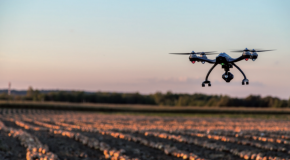
white paper
Getting from farm to fork: The long and short of it
Rapid income growth and urbanisation will have profound impacts on Asia’s food supply chains. Urbanisation, in
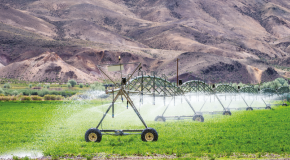
white paper
Liquidity premium: Managing Asia's increasingly scarce water resources
Water scarcity is a growing concern. Global water withdrawal has increased 1.7 times faster than population growth
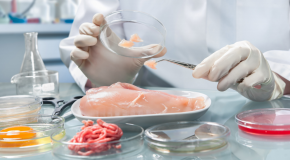
white paper
Food 4.0
As Asia’s food producers aim to meet the demands of a growing population, they are also fighting against the “four

white paper
Fixing Asia's food system
What will Asian food systems look like in 2030? There is no simple answer to this question, because Asia encompasses a

white paper
Food for thought: Eating better
Decades of economic growth and development along with better governance and nutrition-specific programmes had lifted
Related content

Food 4.0
As Asia’s food producers aim to meet the demands of a growing population, they are also fighting against the “four horsemen” of climate change: increasing temperatures, decreasing rainfall, extreme adverse weather events and the environmental consequences of decades of intensive land use.
While these challenges pose a serious threat to the region’s food supply, they also create opportunities for innovation—from gene editing and laboratory-grown meat to crop surveillance by drones and satellites. Food companies, scientists and farmers in Asia are adopting agricultural innovation to support their markets.
How regional players are innovating to overcome Asia’s challenges holds lessons for global audiences. To examine their views and approaches, the EIU surveyed agriculture and food executives in China, India, Indonesia, Malaysia, the Philippines, Singapore and Thailand.
Download article Food 4.0: Leveraging food innovation in Asia to learn more>
In order to understand the systemic concerns regarding Asian food system, we explore on 2 key questions in the Food 4.0: The future of food innovation in Asia report:
Which trends are driving innovations in Asia's food system? What are the challenges and opportunities for policymakers and the private sector in managing these trends?Download report Food 4.0: The future of food innovation in Asia for more details>

Global development goals: opportunities and obstacles
The Q&As explore progress towards and what remains to be done to meet the Sustainable Development Goals (SDGs), or 17 UN-backed goals which more than 190 countries in 2015 agreed to prioritise as national targets. These targets include reducing environmental degradation and improving education, health and industrial innovation.
Breaking Barriers: Agricultural trade between GCC and Latin America
The GCC-LAC agricultural trading relationship has thus far been dominated by the GCC’s reliance on food imports, specifically meat, sugar, and cereals. Over the past two years, however, there has been a notable decline in the share of sugar imported from LAC, and 2017 saw the biggest importers in the GCC—Saudi Arabia and the UAE—impose a ban on Brazilian meat.
More from this series
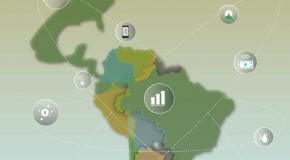
white paper
Latin America’s emerging sectors: A closer look at fintech and renewable ...
There is a strong consensus in the market that 2018 will be a better year than 2017 for LAC economies. Private demand is
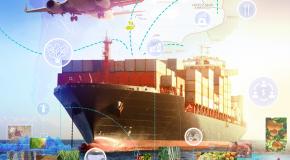
white paper
Breaking Barriers: Agricultural trade between GCC and Latin America
The GCC-LAC agricultural trading relationship has thus far been dominated by the GCC’s reliance on food imports,
Related content

The Hinrich Foundation Sustainable Trade Index 2018
Yet the enthusiasm in Asia for trade does not appear to have waned. This broad societal consensus behind international trade has enabled Asian countries to continue broadening and deepening existing trading relationships, for example, by quickly hammering out a deal for the Comprehensive and Progressive Agreement for Trans-Pacific Partnership (CPTPP) in early 2018 following the US’s withdrawal from its predecessor in 2017.
Asia, then, finds itself in the unique position of helping lead and sustain the global economy’s commitment to free and fair trade. It is in this context that the need for sustainability in trade is ever more crucial.
The Hinrich Foundation Sustainable Trade Index was created for the purpose of stimulating meaningful discussion of the full range of considerations that policymakers, business executives, and civil society leaders must take into account when managing and advancing international trade.
The index was commissioned by the Hinrich Foundation, a non-profit organisation focused on promoting sustainable trade. This, the second edition of the study, seeks to measure the capacity of 20 economies—19 in Asia along with the US—to participate in the international trading system in a manner that supports the long-term domestic and global goals of economic growth, environmental protection, and strengthened social capital. The index’s key findings include:
Countries in Asia, especially the richer ones, have broadly regressed in terms of trade sustainability. Hong Kong is developed Asia’s bright spot, recording a slight increase in its score and topping the 2018 index. Several middle-income countries perform admirably, led by Sri Lanka. For the economic pillar, countries generally performed well in terms of growing their labour forces as well as their per-head GDPs. For the social pillar, sharp drops for some countries in certain social pillar indicators contribute to an overall decline. For the environmental pillar, with deteriorating environmental sustainability in many rich countries, China, Laos and Pakistan are the only countries to record increases in scores. Sustainability is an ever more important determinant of FDI and vendor selection in choosing supply-chain partners. Companies are improving the sustainability of their supply chains by restructuring and broadening relationships with competitors and vendors.
The Global Illicit Trade Environment Index 2018
To measure how nations are addressing the issue of illicit trade, the Transnational Alliance to Combat Illicit Trade (TRACIT) has commissioned The Economist Intelligence Unit to produce the Global Illicit Trade Environment Index, which evaluates 84 economies around the world on their structural capability to protect against illicit trade. The global index expands upon an Asia-specific version originally created by The Economist Intelligence Unit in 2016 to score 17 economies in Asia.
View the Interactive Index >> Download workbook

Resetting the agenda: How ESG is shaping our future
The Covid-19 pandemic has exposed a wealth of interconnections – between ecological and human wellbeing, between economic and environmental fragility, between social inequality and health outcomes, and more. The consequences of these connections are now filtering through, reshaping our society and economy.
In this setting, the need to integrate environmental, social and governance (ESG) factors when investing has become even more critical. Institutional investors must employ ESG not just to mitigate risks and identify opportunities, but to engage with companies to bring about the positive change needed to drive a sustainable economic recovery in the post-Covid world.
In order to understand how ESG could be both a new performance marker and a growth driver in this environment, as well as how institutional investors are using ESG to make investment decisions and to assess their own performance, The Economist Intelligence Unit (EIU), sponsored by UBS, surveyed 450 institutional investors working in asset and wealth management firms, corporate pension funds, endowment funds, family offices, government agencies, hedge funds, insurance companies, pension funds, sovereign wealth funds and reinsurers in North America, Europe and Asia-Pacific.
Download the report and infographic to learn more.
Breaking Barriers: Agricultural trade between GCC and Latin America
The GCC-LAC agricultural trading relationship has thus far been dominated by the GCC’s reliance on food imports, specifically meat, sugar, and cereals. Over the past two years, however, there has been a notable decline in the share of sugar imported from LAC, and 2017 saw the biggest importers in the GCC—Saudi Arabia and the UAE—impose a ban on Brazilian meat.
Related content

The Hinrich Foundation Sustainable Trade Index 2018
Yet the enthusiasm in Asia for trade does not appear to have waned. This broad societal consensus behind international trade has enabled Asian countries to continue broadening and deepening existing trading relationships, for example, by quickly hammering out a deal for the Comprehensive and Progressive Agreement for Trans-Pacific Partnership (CPTPP) in early 2018 following the US’s withdrawal from its predecessor in 2017.
Asia, then, finds itself in the unique position of helping lead and sustain the global economy’s commitment to free and fair trade. It is in this context that the need for sustainability in trade is ever more crucial.
The Hinrich Foundation Sustainable Trade Index was created for the purpose of stimulating meaningful discussion of the full range of considerations that policymakers, business executives, and civil society leaders must take into account when managing and advancing international trade.
The index was commissioned by the Hinrich Foundation, a non-profit organisation focused on promoting sustainable trade. This, the second edition of the study, seeks to measure the capacity of 20 economies—19 in Asia along with the US—to participate in the international trading system in a manner that supports the long-term domestic and global goals of economic growth, environmental protection, and strengthened social capital. The index’s key findings include:
Countries in Asia, especially the richer ones, have broadly regressed in terms of trade sustainability. Hong Kong is developed Asia’s bright spot, recording a slight increase in its score and topping the 2018 index. Several middle-income countries perform admirably, led by Sri Lanka. For the economic pillar, countries generally performed well in terms of growing their labour forces as well as their per-head GDPs. For the social pillar, sharp drops for some countries in certain social pillar indicators contribute to an overall decline. For the environmental pillar, with deteriorating environmental sustainability in many rich countries, China, Laos and Pakistan are the only countries to record increases in scores. Sustainability is an ever more important determinant of FDI and vendor selection in choosing supply-chain partners. Companies are improving the sustainability of their supply chains by restructuring and broadening relationships with competitors and vendors.
The Global Illicit Trade Environment Index 2018
To measure how nations are addressing the issue of illicit trade, the Transnational Alliance to Combat Illicit Trade (TRACIT) has commissioned The Economist Intelligence Unit to produce the Global Illicit Trade Environment Index, which evaluates 84 economies around the world on their structural capability to protect against illicit trade. The global index expands upon an Asia-specific version originally created by The Economist Intelligence Unit in 2016 to score 17 economies in Asia.
View the Interactive Index >> Download workbook

Breaking Barriers: Agricultural trade between GCC and Latin America
The GCC-LAC agricultural trading relationship has thus far been dominated by the GCC’s reliance on food imports, specifically meat, sugar, and cereals. Over the past two years, however, there has been a notable decline in the share of sugar imported from LAC, and 2017 saw the biggest importers in the GCC—Saudi Arabia and the UAE—impose a ban on Brazilian meat.
Market players on both sides of the aisle are keen to grow the relationship further, but there are hurdles to overcome. In this report, we explore in greater depth the challenges that agricultural exporters and importers in LAC and the GCC face. We consider both tariff and non-tariff barriers and assess key facets of the trading relationship including transport links, customs and certification, market information, and trade finance.
Key findings of the report:
GCC will need to continue to build partnerships to ensure a secure supply of food. Concerns over food security have meant that the GCC countries are exploring ways to produce more food locally. However, given the region’s climate and geology, food imports will remain an important component of the food supply. Strengthening partnerships with key partners such as those in LAC, from which it sourced 9% of its total agricultural imports in 2016, will be vital to food security in the region.
There is a wider range of products that the LAC countries can offer the GCC beyond meat, sugar and cereals. Providing more direct air links and driving efficiencies in shipping can reduce the time and cost of transporting food products. This will, in turn, create opportunities for LAC exporters to supply agricultural goods with a shorter shelf life or those that are currently too expensive to transport. Exporters cite examples such as berries and avocados.
The GCC can engage small and medium-sized producers that dominate the LAC agricultural sector by offering better trade financing options and connectivity. More direct air and sea links can reduce the cost of transporting food products, making it viable for smaller players to participate in agricultural trade. The existing trade financing options make it prohibitive for small and medium-sized players too. Exporters in LAC suggest that local governments and private companies in the GCC can offer distribution services with immediate payments to smaller suppliers at a discount.
Blockchain technology is poised to address key challenges market players face in agricultural trade. Through a combination of smart contracts and data captured through devices, blockchain technology can help to reduce paperwork, processing times and human error in import and export processes. It can improve transparency, as stakeholders can receive information on the state of goods and status of shipments in real time. Finally, it can help with food safety and quality management—monitoring humidity and temperature, for instance, along the supply chain can help to pinpoint batches that may be contaminated, minimising the need for a blanket ban on a product.
Fixing Food 2016: Towards a More Sustainable Food System
 The Food Sustainability Index (FSI), which ranks 25 countries according to their food system sustainability, is a quantitative and qualitative benchmarking model.
The Food Sustainability Index (FSI), which ranks 25 countries according to their food system sustainability, is a quantitative and qualitative benchmarking model.
Related content

Value-based healthcare in Sweden: Reaching the next level
The need to get better value from healthcare investment has never been more important as ageing populations and increasing numbers of people with multiple chronic conditions force governments to make limited financial resources go further.
These pressures, along with a greater focus on patient-centred care, have raised the profile of VBHC, especially in European healthcare systems. Sweden, with its highly comprehensive and egalitarian healthcare system, has been a leader in implementing VBHC from the beginning, a fact that was underscored in a 2016 global assessment of VBHC published by The Economist Intelligence Unit.
This paper looks at the ways in which Sweden has implemented VBHC, the areas in which it has faced obstacles and the lessons that it can teach other countries and health systems looking to improve the value of their own healthcare investments.

Breast cancer patients and survivors in the Asia-Pacific workforce
With more older women also working, how will the rising trend of breast cancer survivorship manifest in workplace policies, practices and culture? What challenges do breast cancer survivors face when trying to reintegrate into the workforce, or to continue working during treatment? How can governments, companies and society at large play a constructive role?
This series of reports looks at the situation for breast cancer survivors in Australia, New Zealand and South Korea. It finds that while progress has been made, more needs to be done, particularly in South Korea, where public stigma around cancer remains high.
The Cost of Silence
Cardiovascular diseases levy a substantial financial toll on individuals, their households and the public finances. These include the costs of hospital treatment, long-term disease management and recurring incidence of heart attacks and stroke. They also include the costs of functional impairment and knock-on costs as families may lose breadwinners or have to withdraw other family members from the workforce to care for a CVD patient. Governments also lose tax revenue due to early retirement and mortality, and can be forced to reallocate public finances from other budgets to maintain an accessible healthcare system in the face of rising costs.
As such, there is a need for more awareness of the ways in which people should actively work to reduce their CVD risk. There is also a need for more primary and secondary preventative support from health agencies, policymakers and nongovernmental groups.
To inform the decisions and strategies of these stakeholders, The Economist Intelligence Unit and EIU Healthcare, its healthcare subsidiary, have conducted a study of the prevalence and costs of the top four modifiable risk factors that contribute to CVDs across the Asian markets of China, Australia, Hong Kong, Japan, Singapore, South Korea, Taiwan and Thailand.
Download the report to learn more.
How to limit global warming to 1.5°C
Related content

Resetting the agenda: How ESG is shaping our future
The Covid-19 pandemic has exposed a wealth of interconnections – between ecological and human wellbeing, between economic and environmental fragility, between social inequality and health outcomes, and more. The consequences of these connections are now filtering through, reshaping our society and economy.
In this setting, the need to integrate environmental, social and governance (ESG) factors when investing has become even more critical. Institutional investors must employ ESG not just to mitigate risks and identify opportunities, but to engage with companies to bring about the positive change needed to drive a sustainable economic recovery in the post-Covid world.
In order to understand how ESG could be both a new performance marker and a growth driver in this environment, as well as how institutional investors are using ESG to make investment decisions and to assess their own performance, The Economist Intelligence Unit (EIU), sponsored by UBS, surveyed 450 institutional investors working in asset and wealth management firms, corporate pension funds, endowment funds, family offices, government agencies, hedge funds, insurance companies, pension funds, sovereign wealth funds and reinsurers in North America, Europe and Asia-Pacific.
Download the report and infographic to learn more.

Charting the course for ocean sustainability in the Indian Ocean Rim
Charting the course for ocean sustainability in the Indian Ocean Rim is an Economist Intelligence Unit report, sponsored by Environment Agency Abu Dhabi and the Department of Economic Development Abu Dhabi, which highlights key ocean challenges facing the Indian Ocean Rim countries and showcases initiatives undertaken by governments and the private sector in the region to address these challenges.
Click here to view the report.

Fixing Asia's food system
The urgency for change in Asia's food system comes largely from the fact that Asian populations are growing, urbanising and changing food tastes too quickly for many of the regions’ food systems to cope with. Asian cities are dense and are expected to expand by 578m people by 2030. China, Indonesia and India will account for three quarters of these new urban dwellers.
To study what are the biggest challenges for change, The Economist Intelligence Unit (EIU) surveyed 400 business leaders in Asia’s food industry. According to the respondents, 90% are concerned about their local food system’s ability to meet food security needs, but only 32% feel their organisations have the ability to determine the success of their food systems. Within this gap is a shifting balance of responsibility between the public and private sectors, a tension that needs to and can be strategically addressed.


